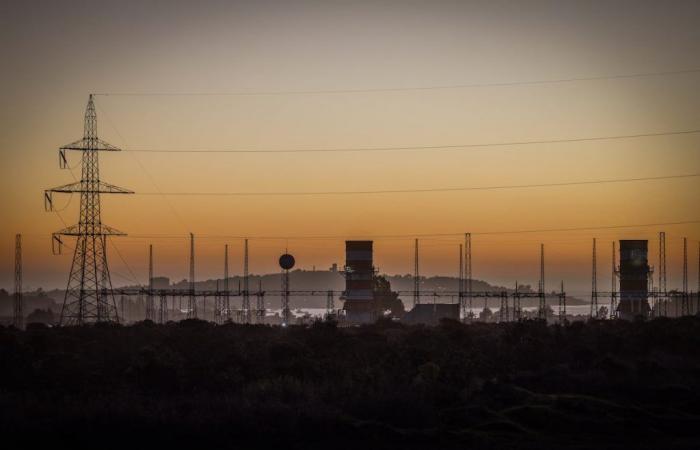
Turning on the light in Chile will be more expensive in a few days. Almost five years after the freezing of electricity prices, the country will stabilize rates starting July 1, which could mean increases of close to 30% next month and up to 60% in household accounts towards 2025.
The main driver of the thaw has been the growing debt of the State with the electricity generating companies, which amounts to about US$6,000 million. “The debt will be repaid in the next decade, perhaps beyond 2031,” said Claudio Seebach, former president of Generadoras Chile and dean of the Faculty of Engineering and Sciences of the Adolfo Ibáñez University, in a telephone interview with EL COUNTRY.
The costs of electrical energy in Chile are already among the four highest in South America according to a ranking by Global Petrol Prices, an energy data collection and analysis project. But the adjustment of the balances will hardly position the South American country above others, where the service is more expensive, such as Uruguay, according to Seebach.
The buffer against the rise in rates will be green energies, of which Chile stands out worldwide for its advances. “Renewables precisely allow us to repay these debts in the future. As they are cheaper, they contribute to lowering the price of energy production,” he explained.
If the South American country did not have this development, the scenario would be different because prices would have skyrocketed due to its complete dependence on hydrocarbons. “Thanks to the arrival of solar and wind energy, debt repayment will be accelerated,” adds the academic.
The light opens the debate
In Chile, electricity prices were frozen in October 2019 – in the context of the social unrest – to support vulnerable families. With the arrival of the pandemic, this measure was extended. But in April of this year, Congress approved the Electricity Rate Stabilization Law, which will come into force next week and will allow the debt accumulated with electricity generation companies to be paid within a period of nine years and create a subsidy focused on of a million homes. The first of the increases will occur in July, but others are expected in October and January.
But, for now, the rise in electricity bills has opened a debate about the impact on inflation in the country, which had been reduced to 4.1% annually from 14.1%, registered in August 2022. and the highest level in three decades.
In its latest Monetary Policy Report (IPoM), the Central Bank of Chile has adjusted its projection of the Consumer Price Index (CPI) to 4.2% at the end of 2004, four tenths more than estimated in March. According to the issuing institute, the increase in electricity bill prices will have a powerful influence on the indicator. “Firstly, the electricity supply service represents 2.2% of the household consumption basket,” he noted.
Meanwhile, service-producing companies also use this energy as an input, which causes an indirect effect on inflation.
To avoid a bigger blow, the Executive will provide a subsidy for 40% of the most vulnerable households starting next month, as provided for in the Electricity Rate Stabilization Law. In addition, the Government spokesperson, Camila Vallejo, declared this Monday that “different proposals are being evaluated” to contain the increase.
Hermann González, macroeconomic coordinator of the Latin American Center for Economic and Social Policies of the Catholic University (Clapes UC), detects a direct effect for the Executive, especially for public resources that will be used to mitigate the impact on the pockets of people with lower income. “The State will incur costs due to the aid. One could also consider that there is an important signal, which remains to be seen how it will be resolved, regarding what to do in terms of readjustments of rates for basic services and subsidies related to those rates.” And he adds: “I think there is a very important test for the State, and in particular the Government, about what to do in this case, to give correct signals regarding that prices effectively reflect the production costs of services and there is no mechanism in which subsidies are used in a way beyond what is prudent from a fiscal point of view because that, sooner or later, ends up taking its toll.”
The magnitude of the increase, postponed for almost five years, has been so great that it will now be complex to make a direct transfer to all consumers, highlights González.
However, he agrees that focused aid is needed in the rate adjustment process. He also believes thawing should be done gradually to avoid a direct impact on homes.
Subscribe here to the EL PAÍS Chile newsletter and receive all the key information on current events in the country.

